Recent Articles
Popular Makes
Body Types
2019 Nissan Versa Road Test and Review
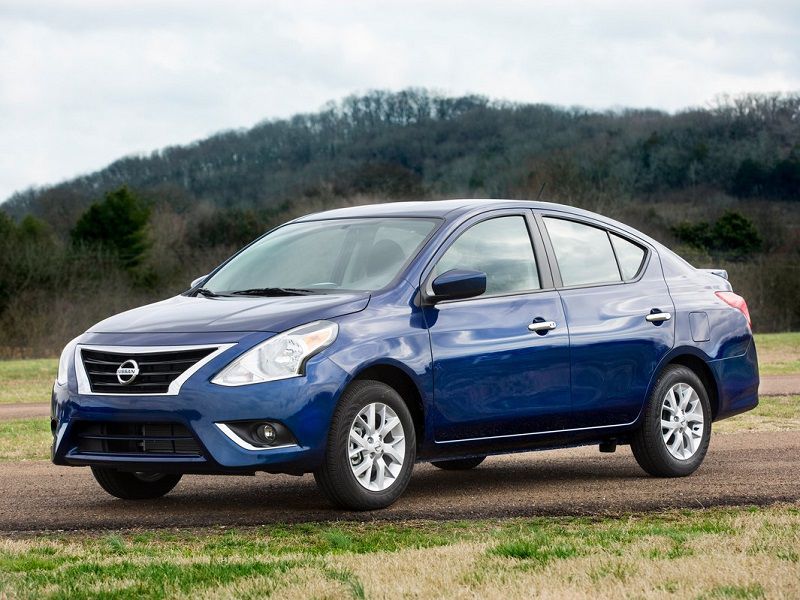
2019 Nissan Versa Blue Front Three Quarter ・ Photo by Nissan
Nissan has already unveiled the all-new 2020 Versa, which will go on sale later this year. But the 2019 Nissan Versa remains a popular option for buyers in the subcompact class.
The Versa is Nissan’s smallest and least expensive vehicle. It’s also one of its most fuel-efficient. Now in its second generation, the Versa received a short list of improvements last year, including a new backup camera and an upgraded audio system with a larger 7.0-inch color touchscreen. Although sales of small fuel-efficient subcompacts have slowed, the class remains crowded and the 2019 Nissan Versa competes with the Ford Fiesta, Toyota Yaris, Honda Fit, Chevrolet Sonic, Hyundai Accent, and Kia Rio.
Two Body Styles, Three Trim Levels
Built in Mexico, the 2019 Nissan Versa is offered in two body styles, a four-door sedan and a five-door hatchback, which Nissan calls the Versa Note. There are three trim levels available on each. The least expensive is the Versa S sedan with a five-speed manual transmission. Prices start at $13,255, including an $895 destination fee. The least expensive model with Nissan’s continuously variable automatic transmission (CVT) costs $2,140 more, which is a considerable jump in price. The most expensive version of the Versa sedan is the SV, like our test vehicle, at $16,885.
If you’re looking for a hatchback, the Versa Note costs quite a bit more than the Versa sedan. Base prices start at $16,545 for the Note S and top out at $19,255 for a Note SR. All Versa Notes get the CVT standard, and all Versa models are powered by an extremely fuel-efficient four-cylinder engine.
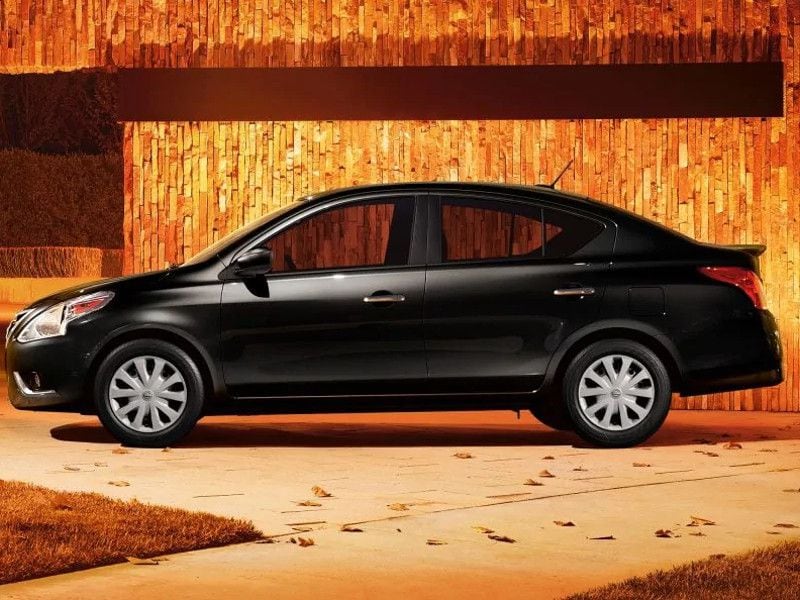
Photo by Nissan
Pricey Special Edition
For 2019 Nissan has brought back the popular SV Special Edition package on the Versa sedan. The automaker has even sweetened the deal a bit. Our Versa SV Special Edition test vehicle came equipped with standard 15-inch aluminum wheels, fog lights and front fascia chrome accents, a leather-wrapped steering wheel, a piano black console lid, keyless entry, push-button start, and the NissanConnect infotainment system with Apple CarPlay and Android Auto.
This Versa sedan was pleasant to drive and well-equipped, but it cost well over $17,000, and for that money you can probably get a decent example of Nissan’s larger Sentra sedan. From a pure value standpoint, the larger Sentra, which has a more spacious back seat and trunk than the Versa, seems like the better buy.
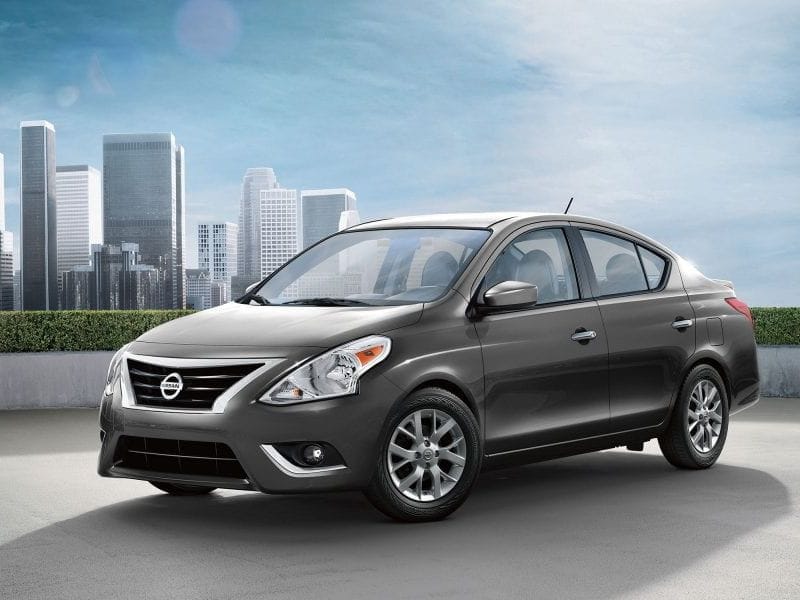
Photo by Nissan
Decent Power
Front-wheel drive is standard. Nissan doesn’t offer all-wheel drive on the Versa, which is normal for this class. There isn’t a hybrid or electric version either. Buyers looking for electrification should shop the Toyota Prius c hybrid.
All Versas are powered by a smooth 1.6-liter four-cylinder engine with start-of-the-art technology like double overhead cams, variable valve timing, and direct fuel injection. The engine makes only 109 hp, however, which is light for the class. Many of the Nissan’s competitors offer more power. Acceleration is sufficient. The Versa hits 60 mph in about 9.2 seconds. Enthusiast drivers in this class should run out and buy one of the last examples of the turbocharged 197-hp Ford Fiesta ST before Ford discontinues it.
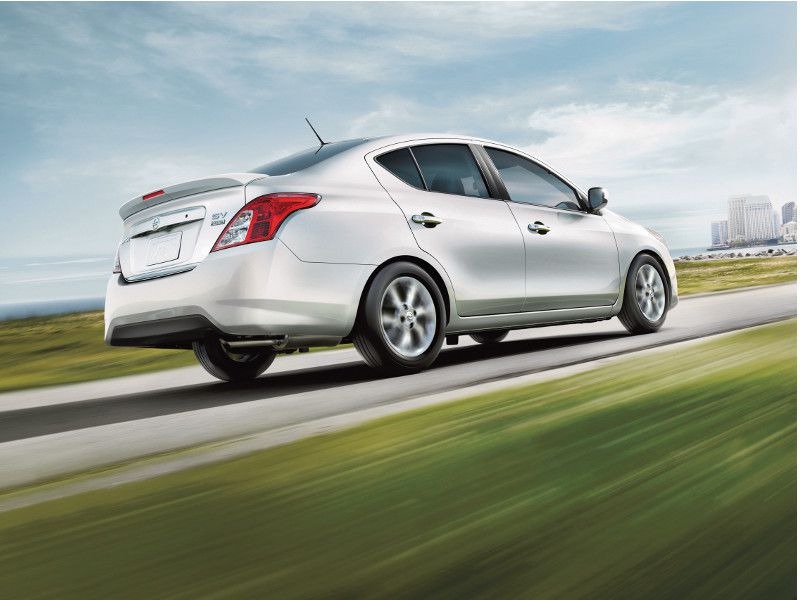
Photo by Nissan
Strong Fuel Economy
Versas can certainly stretch a gallon of gasoline. A Versa sedan with the standard five-speed manual transmission is rated at 27 mpg in the city and 36 mpg on the highway. With the CVT automatic, like in our test vehicle, all Versas improve to 31 mpg city and 39 mpg highway. We averaged 32 mpg in mixed driving.
Although those numbers are strong for the subcompact class, some of the Nissan’s competition match or exceed the Versa’s fuel economy ratings, while offering considerably more horsepower. The Honda Fit hatchback, for instance, packs 130 hp and is rated at up to 33 mpg city and 40 mpg highway. The Fit is also more fun to drive than the Versa, and its acceleration to 60 mph is considerably quicker. If you must have a sedan, check out the Toyota Yaris iA. It’s one of our favorites to drive and it's rated at 32 mpg city and 40 mpg highway.
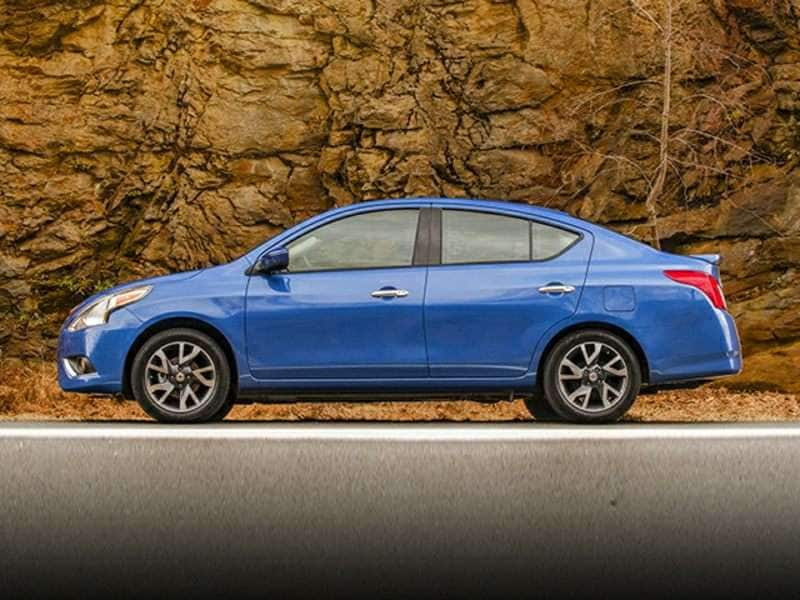
Photo by Nissan
Sporty and Easy to Park
Although the 2019 Nissan Versa isn’t as sporty or fun to drive as the Ford Fiesta and Honda Fit, it is responsive enough to satisfy most drivers. This little car is agile and athletic. Its steering is quick, and the Versa’s light weight and small size make it easy to maneuver around town and fun to squirt through traffic. It’s also extremely easy to park.
Around town, the Versa is comfortable and effortless with a smooth ride and quiet interior. Many shoppers think a subcompact has to feel tinny and fragile, but the Nissan Versa doesn’t. The subcompact is best in the city, but it cruises well on the highway, where it feels substantial and stable and has an overall refinement Nissan can be proud of.
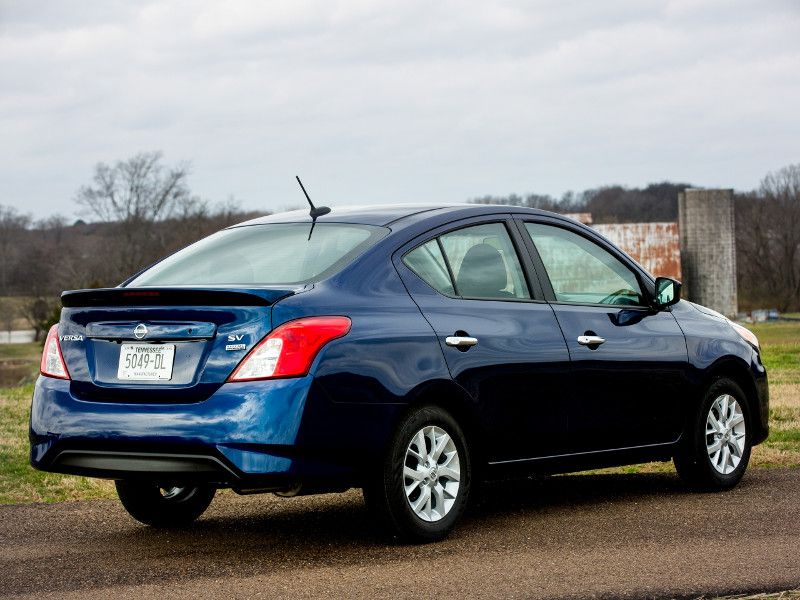
Photo by Nissan
Functional Interior
You’re not going to mistake the interior of the 2019 Nissan Versa for something from Bentley, but the small sedan’s cabin is well assembled, attractive, and comfortable. It also offers simple ergonomics, clean instrumentation, and an easy-to-reach 7-inch touchscreen. There are also proper knobs to tune the audio system and adjust the volume. Onboard Wi-Fi is not offered.
Visibility is excellent, and the seats in our test vehicle were comfortable. A height-adjustable driver’s seat and a tilt steering wheel are standard on every model, so getting comfortable is not a problem. Unfortunately, a telescopically adjustable steering column is not available. Interior storage is sufficiently generous.; the center console bin and door pockets are just large enough to be useful, and the door pockets include bottle holders for your organic water. The two front cupholders are large, but your drink will block the USB jack below the climate controls.
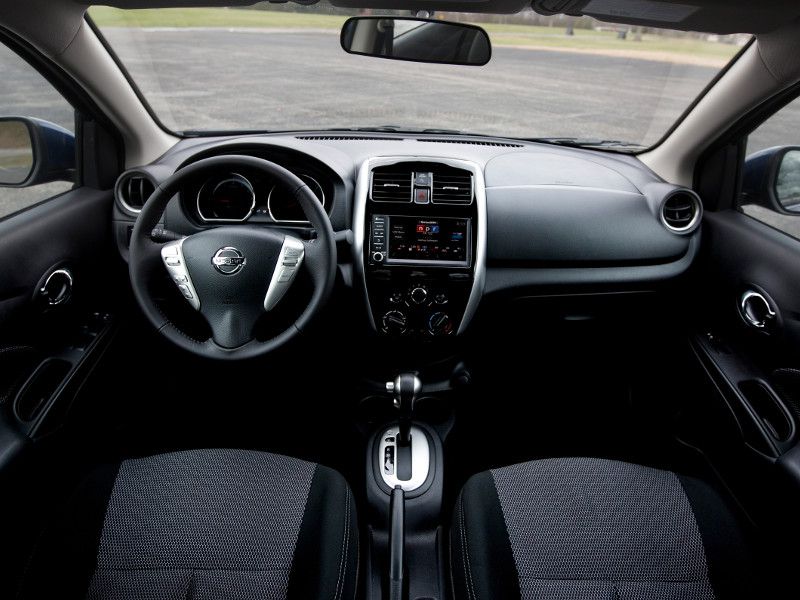
Photo by Nissan
Abundant Cargo Space
Cargo space is also surprisingly abundant. The sedan’s trunk offers 14.9 cubic feet, which is large for the class and more than enough for a couple of golf bags. Behind its rear seat, the Versa Note hatchback offers 18.8 cubic feet, which is quite a bit more than you get in Honda Fit.
If more is needed, every Versa comes with a 60/40 split-folding rear seat. Drop the rear seats, which is an easy operation, and the hatchback’s cargo volume explodes to 38.8 cubic feet. With its rear seat folded flat, the Versa sedan’s trunk even swallowed a 20-inch BMX bike, which was a nice surprise. Buyers should know that the Honda Fit’s 52.7 cubic feet of ultimate possible space is still class-leading.
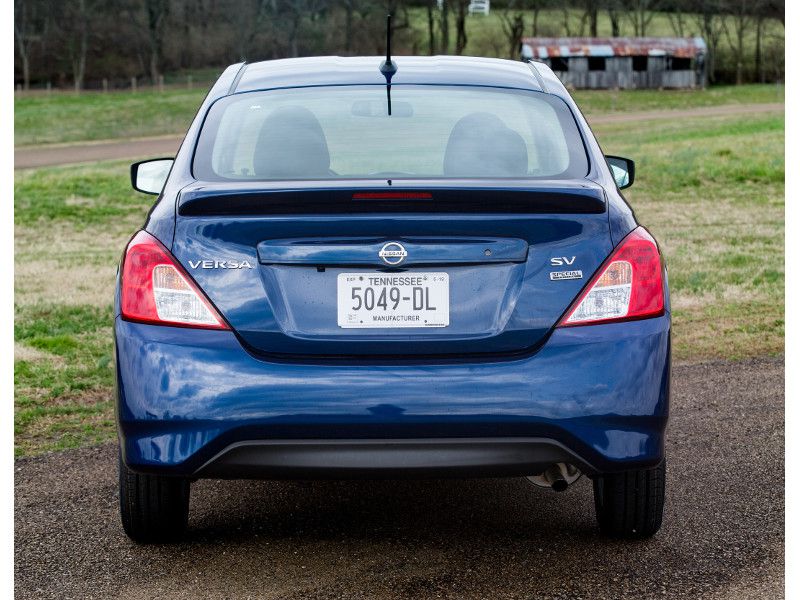
Photo by Nissan
Small But Family-Friendly
Nissan’s Versa does seat five, and its rear seat is one of the more spacious in the subcompact class. Three teens do fit, but sitting in the middle of the backseat for an extended period of time gets cramped. Parents with younger kids will appreciate the Versa’s easy-to-reach LATCH connectors in the outboard seats and easily accessed upper tether anchors.
Unlike some other cars in this class, driver aids like automatic emergency braking, a forward-collision warning, and a lane-departure warning are not available on the 2019 Versa. In crash testing, the Versa has an overall safety rating of four stars from the National Highway Traffic Safety Administration. Many cars in this class, like the Chevrolet Sonic and Honda Fit, are rated five stars. At three years or 36,000 miles, Nissan’s warranty is also shorter than some of its competitors. The Hyundai Accent, for instance, comes with a five-year or 60,000-mile warranty, and its powertrain warranty is longer as well at 10 years or 100,000 miles.
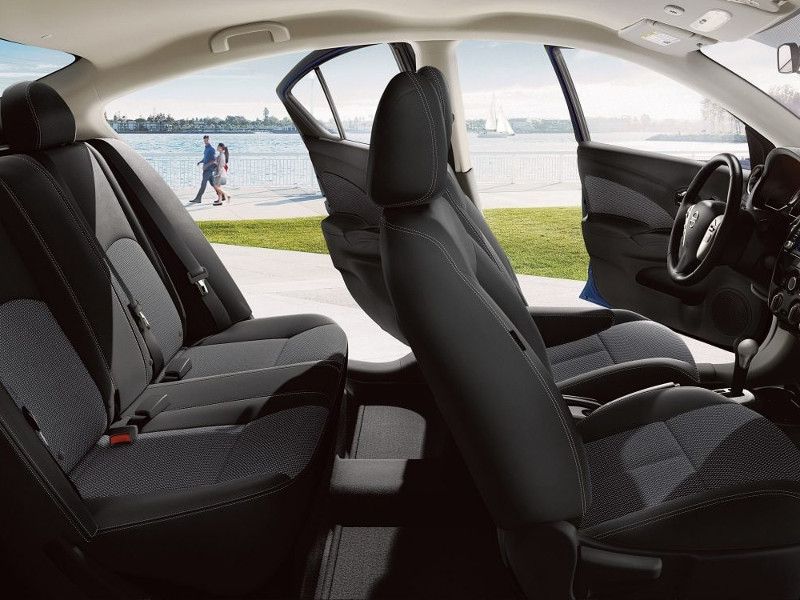
Photo by Nissan
Attractive But Staid Sedan Styling
Today Nissan is a design leader, making some of the most attractive cars on the road. But the look of the 2019 Versa isn’t as fresh as some other Nissan models, and it’s starting to look a bit dated. It does still have an upscale style missing from most other subcompact entries. And it certainly isn’t boxy. The Versa is sculpted and curvaceous. The sedan is generally attractive from every angle. It’s properly proportioned, which isn’t easy for cars of this size or price point, but like the Nissan Sentra, it looks a bit too tall and narrow from the back.
As is often the case in this class, the hatchback model is quite a bit more attractive than the sedan. The five-door Versa Note looks sportier and bit younger than the sedan, with sculpted sides, clean lines, and taillights that accentuate its width.
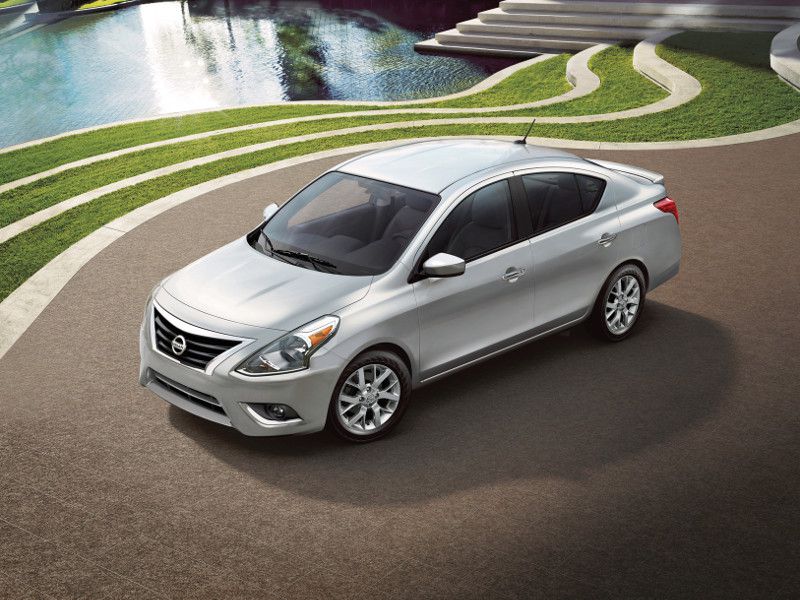
Photo by Nissan
Final Thoughts
Overall, the 2019 Nissan Versa is a solid choice in the very competitive subcompact class. It delivers high fuel economy, comfort, and functionality at a very affordable price. It’s also just sporty enough to be fun-to-drive, it's just attractive enough to satisfy, and it's impressively family-friendly.
Buyers should certainly pay up for the CVT automatic transmission. The five-speed manual in the base sedan is old technology that actually hurts fuel economy. Also, if you can, pay up for the Versa Note hatchback model. It not only looks better, but its additional cargo volume will come in handy over the life of the vehicle. And remember, if the price is over $17,000 for any Versa, think about stepping up the Nissan Sentra.
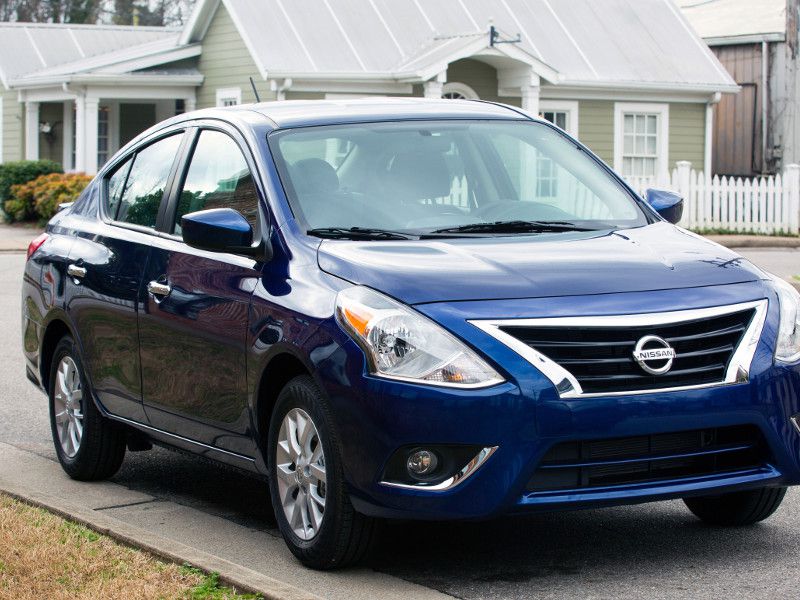
Photo by Nissan